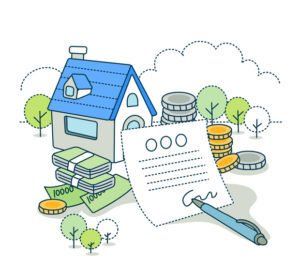PRACTICE AREAS
TESTIMONIALS
“I contacted them because I was having difficulty paying my mortgage every month. My attorney and his team took as much time as I needed to answer all of my questions until I felt comfortable knowing what would be done to help me stop my foreclosure. They fought with the bank in court and negotiated for a lower mortgage payment. I get to keep my home thanks to them.”
– Marsha Williams.
“We have retained First Legal to help us with the legal issues facing our company when investing in real estate. They are a great partner and add value to our bottom line.”
– Brian Bussey, Manager of Dalino LLC.
What Happens When You Fall Behind on Your HOA Assessments?
A homeowners association, or HOA, is an organization responsible for maintaining common areas in a planned development. HOA assessments are collected from all residents on a monthly , quarterly or annual basis to cover maintenance expenses.
Before move-in, residents must sign Covenants, Conditions, and Restrictions (CC&Rs), formal documentation of rights and responsibilities. In many cases, these CC&Rs give HOAs sweeping power to aggressively collect debts.
HOAs can take action even if you owe only a few hundred dollars in HOA assessments.
How Do Homeowners Associations Seek Unpaid Dues?
All HOAs are different, but recent years have given them a reputation for unfair and often unscrupulous behavior. If you’re having trouble paying HOA assessments, it’s vital to understand what might happen during an attempt to collect.
Collection efforts typically progress like this:
Issuing a Demand Notice
A demand notice is a formal request for repayment of a debt that indicates its amount, any penalties, and how the debt was accrued. These are typically sent by mail, though you may also receive a phone call. Demands usually include information on the next steps the HOA may take.
Offering a Repayment Plan
A repayment plan may be offered in the demand notice. If you feel you may be able to repay the debt under appropriate terms, it is a good idea to contact the HOA and ask about plans. Not all HOAs will be proactive in offering one.
Removal of Privileges
Association fees are directly related to maintaining property amenities. Since the HOA can claim you haven’t paid for these assets, you may lose access to them. This can include things like pools, gyms, and clubhouses.
Placement of a Lien
CC&Rs typically empower HOAs to place a lien on the property. This will bar you from selling or refinancing your home, and is a precursor to foreclosure. Many HOAs will record the lien with the county to make it a matter of public record, even when the law does not require it.
Foreclosure and/or Lawsuits
If the CC&Rs and state laws allow, the HOA may move to foreclose on your home. When this is impossible, a lawsuit becomes likely. Courts can garnish your wages or bank accounts to compel you to pay your HOA fees and late charges.
First Legal P.A in Miami, Florida
Most people don’t know their HOA Florida or HOA Miami rights. Assessment debts can be dismissed by courts if they are found to be invalid or inflated by large penalties. If you are having HOA issues, contact First Legal at (954) 998-1488.
The post What Happens When You Fall Behind on Your HOA Assessments? appeared first on First Legal, P.A..


